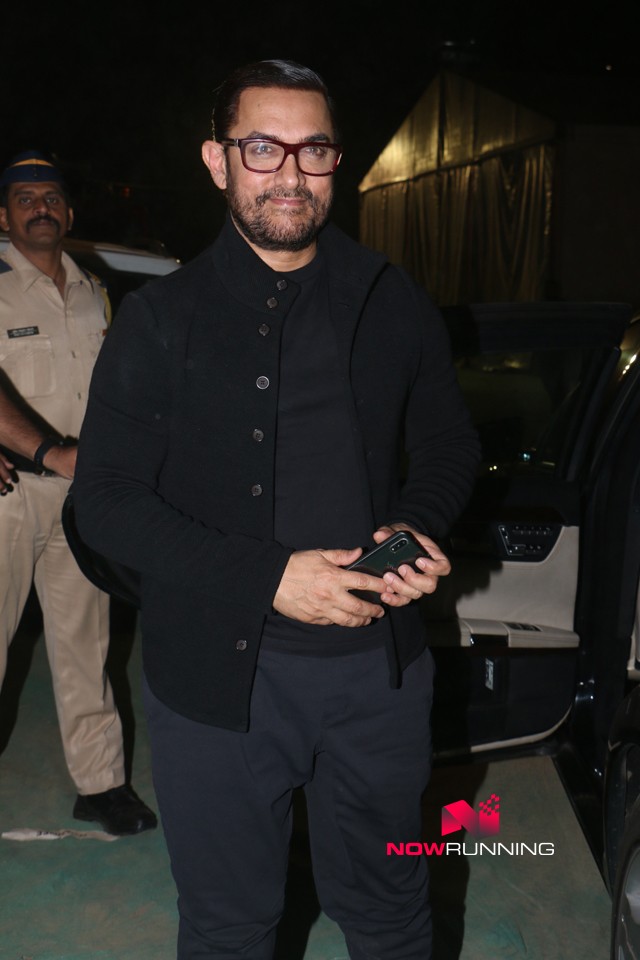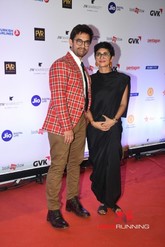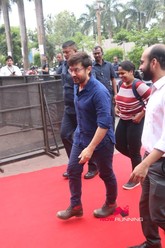
The method behind Aamir Khan's many moves
Apr 12, 2008 Chitra PadmanabhanThe Indian national football team captain, Bhaichung Bhutia, barely squeezed in 11 minutes of the mandatory 15 minutes of fame for his principled decision not to carry the Beijing bound Olympic torch in Delhi on April 17. Reason: somewhere between the 10th and the 11th minute his thunder was stolen by actor/director Aamir Khan who stated that he had a different way of wearing his conscience on his sleeve. He would carry the torch but with a prayer in his heart for the people of Tibet; the Games did not belong to China but to the human race.
On screen, it would be called a nuanced piece of method acting. Off-screen it is called positioning. Or is it just a coincidence that among the human race that owns the Games are official sponsors Coca-Cola, a brand Khan carries a torch for through endorsements? Poor man, he will be running multiple overlaps - carrying the Olympic torch as a Coke team member, for himself, for humanity's claim to the Games and, simultaneously, for the Tibetan cause against China's oppression. That's a lot of running of the treadmill kind.
It is a measure of Khan's reputation as a thinking individual that his recent sniper attempts to voice issues have not met with the usual disdain reserved for motor-mouth celebrities. Largely, Khan's stance as explained on his blog - sans any mention of the Coke factor - has been hailed as a 'mature' decision, preserving India's diplomatic face while expressing support for Tibet. Khan comes across as someone who is not afraid to take a position even if he stands to lose, who thinks through an issue carefully.
There's a catch. We are used to Aamir the perfectionist who can go to ridiculous lengths for the right tone to his role and has been content to let his films talk, who extended himself during the Mumbai riots (1992-93) and after the earthquake (2001) and violence (2002) in Gujarat without craving the public persona of a conscientious moral and intellectual force.
But his recent postures hint at a Khan driven to craft a second coming Rang De Basanti style, by becoming a public figure of conscience -- taking off from roles dealing with issues of nationhood, fundamentalism and youth awakening to socio-political realities.
Except the perfectionism of Khan's reel life is somewhat missing in this real life role. It's not quite Aamir.
Take his directorial debut "Taare Zameen Par", released end-December 2007 and screened exclusively for L.K Advani in January 2008 on request. The bonhomie must have helped Khan in Gujarat, where violent protests had stalled his previous film "Fanaa's" release.
He had refused to apologise to Chief Minister Narendra Modi for expressing solidarity towards the Sardar Sarovar Dam oustees -- a stand worthy of admiration.
At a press conference Khan had said, "I want the people of India to see that here is a political party (BJP) that does not believe in democracy. Here is a party that does not believe in the rights of poor people..." (Rediff; May 25, 2006).
It was to a stalwart of the same party that Khan showed "Taare". Remember that "Taare" had already seen a delayed release in Vadodara following protests. Besides, the chief minister Khan had defied was back a second time.
Khan says he is not a social activist. His primary responsibility is to entertain. If there is an issue he feels about, he can use his public personality to educate people. A completely valid viewpoint but educate is a big word, presupposing a certain organic attempt at understanding issues.
To react to the pain of the Sardar Sarovar Dam oustees by sitting in at an NBA (Narmada Bachao Andolan) dharna in Delhi is also a response. But the only measure of such attempts is to see who benefits more by that action -- even if propelled by good motives. In an age of information glut, solidarity floating on naiveté soon starts looking flimsy.
A comparison may prove useful. As Coke's brand ambassador, Khan sought time to study the allegations of pesticide content in the aerated drink, and of river waters being polluted by Coke plants in several states. He wanted to satisfy himself on certain points before choosing his path of action. Huge endorsement fees may have been a factor, but Khan was conscious of being in the public domain where his actions could be read by everyone.
Similarly, on socio-political issues Khan can either indulge in impromptu behalf-ism or get his method right. At stake is credibility and moral capital, apart from the danger of getting caught in the crossfire by being an apolitical bleeding heart in layered political causes.
Khan can learn from reel life alter egos. Immature Sanju ("Jo Jeeta Wohi Sikandar") is transformed when he finally sees himself for who he is. Bhuvan's ("Lagaan") strength flows from knowing his context; catch him straying from it, no matter the number of mikes thrust aggressively at him.
Carrying a torch with a heartfelt prayer must sound somewhat precious to those engaged in a do or die struggle, considering the Olympic movement has had an iconic history of political protest, by individuals and nations. Clubbing the Tibetan struggle with movements halfway across the globe, without seeing its context, is counterproductive. Being generic has its limitations. In the public domain, a posture springing from honesty, however tentative, has its own rewards.
Under the harsh arc lights, an unfleshed role is so easy to catch. It is time to recognise your core and strengths, Aamir -- a la Sanju and Bhuvan.
Click the Movie button below for more info:
Taare Zameen Par
Aamir Khan Pictures
COMMENTS
More News
















